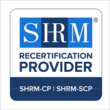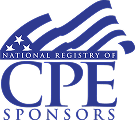Payroll Deductions 2022: What Can and Cannot be Deducted from an Employee’s Wages

About this Webinar
About Webinar
When paying an employee, employers are supposed to calculate an employee’s gross wages in payroll by meticulously following strict regulations regarding “hours worked” and “taxable income”. The employee then receives his or her “net pay”. But there’s a whole lot in between.
What if an employee damages an employee’s property? Can the employer deduct the cost from the employee’s wages? Can you make an employee pay for a uniform or similar items? Are you adhering to applicable federal and state regulations? Failure to do so can result in substantial penalties and interest. In this 90 minute presentation we will offer you insight into how to protect your company and stay compliant with laws regarding employee wage deductions.
Session Highlights
- Taxes—which are mandatory, which are a courtesy, and which ones the employee controls
- Child support—the limits but not beyond
- Tax levies—federal and state
- Creditor garnishments—how many can you honor and how often
- Voluntary wage assignments for payday loans—when are they required to be honored
- Fringe benefits (e.g. health insurance, group term life, uniforms)
- Meals—can they ever be part of the employee’s wages?
- Lodging— employee’s wages or a perk?
- Shortages—can you deduct them from wages?
- Breakage—does an employee have to pay for them out of wages?
- Overpayments—how do you recoup them?
- Advanced vacation pay—can you take them back when the employee quits?
- What happens when an employee leaves or is terminated? Do you have any terms that can be set?
- Employee purchases
- Anti-wage theft laws and the states
Why You Should Attend
In a nutshell, we will discuss what you as an employer can and cannot deduct from an employee’s paycheck – both the regular and final one. We will include a brief overview of child support and its limits, federal and state tax levies, which credit garnishments you can and must honor, voluntary wage assignments for payday loans, fringe benefits and several other related topics.
What must an employer deduct from an employee’s wages? What can be deducted legally? What can never be deducted? These questions and more must be answered correctly before processing that paycheck. If you don’t deduct the proper income taxes, the IRS (and corresponding State Taxation Dept) might assess penalties. If you make other illegal deductions from an employee’s pay, the US and/or State Dept of Labor may come knocking on your door. Does your employee have any say over any of those deductions? In this webinar, we’ll explore the answers to these and many other questions.
Strict regulations apply to calculating an employee’s gross wages, particularly regarding what is counted as “hours worked” and “taxable income”. When deducting from an employee’s gross wages to determine net income, an employer must adhere to the regulations or risk being subject to penalties and interest, which can add up to significant amounts. In this webinar, you will learn how to protect your company while complying with wage deduction laws. We will focus primarily on federal laws and general legal principles that apply to all (or most) states and may use some specific state examples as well.
Who Should Attend
- Payroll Executives/Managers/Administrators/Professionals/Practitioners/Entry Level Personnel
- Human Resources Executives/Managers/Administrators
- Accounting Personnel
- Business Owners/Executive Officers/Operations and Departmental Managers
- Legislators
- Attorneys/Legal Professionals
- Any individual or entity that must deal with the complexities and requirements of Payroll Compliance and are considering making a change in Payroll Frequencies
Speaker(s)
Janette S. Levey, “The Employer’s Lawyer” has over 20 years of legal experience, more than 10 of which she has spent in Employment Law. It was during her tenure as sole in-house counsel for a mid-size staffing company headquartered in Central New Jersey, with operations all over the continental US, that she truly developed her passion for Employment Law.
Janette operates under this core belief: It is possible, and it is in an employer’s best interest, to proactively solve workforce challenges before they become problems, before they result in lawsuits or steep fines caused by government audits.
Janette works with employers on most employment law issues, to ensure that employers are in the best position possible to avoid litigation, audits, employee relations problems, and the attendant, often exorbitant costs. Janette authors the firm’s weekly blog, where you can read each week, in plain English (not legalese) about issues impacting employers today. Janette has written articles on many different employment law issues for many publications, including EEO Insight, Staffing Industry Review, @Law, and Chief Legal Officer.
Janette has served on the Workplace Violence Prevention Institute, a multidisciplinary task force dedicated to providing proactive, holistic solutions to employers serious about promoting workplace safety and preventing workplace violence.
Janette currently serves as an Advisory Board Member for Child and Family Resources of Morris County, New Jersey.
Janette has also spoken and trained on topics, such as Criminal Background Checks in the Hiring Process, Joint Employment, Severance Arrangements, Addressing and Preventing Employee Leave Abuse, Pre-Employment Screening among many, many others.
CEUs

The use of this seal confirms that this activity has met HR Certification Institute’s® (HRCI®) criteria for recertification credit pre-approval.
Credits: 1.5

Supreme Trainer is recognized by SHRM to offer Professional Development Credits (PDCs) for the SHRM-CPSM or SHRM-SCPSM. This program is valid for PDC(s) for the SHRM-CP or SHRM-SCP. For more information about certification or recertification, please visit www.shrmcertification.org
Credits: 1.5

Supreme Trainer is registered with the National Association of State Boards of Accountancy (NASBA) as a sponsor of continuing professional education on the National Registry of CPE Sponsors. State boards of accountancy have final authority on the acceptance of individual courses for CPE credit. Complaints regarding registered sponsors may be submitted to the National Registry of CPE Sponsors through its website: https://www.nasbaregistry.org.
Credits: 1.5

Credits: 0
Unlimited Webinars
Why You Should Subscribe to Our Unlimited Webinar?

Unlimited Live and On-Demand Courses
Watch all live or recorded webinars (up to 120 minutes long). Get instant access to a library of more than 500 high quality courses presented by best-in-class presenters.

CEUs: APA, CPE, SHRM and HRCI Credits
Fulfil your recertification requirements by earning CEUs from APA, CPE, SHRM and HRCI.

Free Access to Course Materials
Each program comes with Additional Course Materials, which you can download and read anytime.

Additional Discounts
Get flat 20% discount on Premium Product Category like, Long Hour Webinars.
SUBSCRIBE NOW
